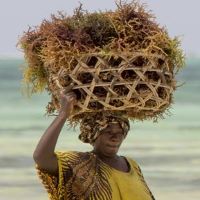

AquaInvest Platform
Authors
Tags
- Climate Change Adaptation (2)
- Seaweed farming (4)
- Rural Livelihoods (3)
- Climate Resilience (1)
- Mariculture (10)
- Digital Agriculture (1)
- Food Security (3)
- Region - Latin America & Caribbean (1)
- Digital Technology & Innovation (1)
- Seaweed (10)
- Fishery (12)
- Blue Economy (12)
- agribusiness policy (1)
- Agribusiness (9)
- Climate Change (2)
- Jobs (1)
- Environment (2)
- Agriculture (7)
- Aquaculture (17)
Blogs
The potential of the Blue Economy
Author: BJÖRN GILLSÄTER While working in the Galápagos Islands in the late 1980s, I saw the interplay between the many interests on the islands: local fishermen taking advantage of the rich
An opportunity to reinvent our food system and unlock human capital too
Authors: ROBERT JONES I PAWAN PATIL What if we had the chance to reinvent the world’s food system and make local, more sustainable, nourishing and diverse food the new norm rather than the
Protecting oceans from climate change impacts
Authors: JULIANA CASTAÑO-ISAZA & SYLVIA MICHELE DIEZ On Ocean Action Day at COP26, government leaders called for the protection and restoration of ocean health. Since the first Ocean Day at COP15 in 2009, global awareness
Unleashing the Blue Economy for economic recovery and resilience in the Eastern Caribbean
Authors: SYLVIA MICHELE DIEZ I DAVID ADEYEMI AROMOKEYE I JORGE BARBOSA Although the Organisation of Eastern Caribbean States (OECS) territories are small in terms of land mass, they are surrounded by a 500,000 km2 seascape – roughly
Transforming livelihoods through good governance and seaweed farming
Author: ALICE LLOYD A tourist eyeing the gorgeous azure waters around Zanzibar, Tanzania, might think about taking a frolic in the waves, but for local fishers, the sea means business--the seafood
Aquaculture Supports a Sustainable Earth
The United Nations maintains 17 Sustainable Development Goals that serve as a framework for international cooperation to help people and the planet thrive. A recent study from the UN shows that aquaculture can improve
Can aquaculture feed the world?
IT is easy for anyone to take a hasty – and understandable – dislike to the United Nations, particularly those who have tried to wander around the UN’s campus in
Can sustainable aquaculture help to achieve the UN SDGs?
What is aquaculture? Aquaculture is the farming of aquatic animals and plants such as fish, shellfish, seaweed and algae in water environments. Aquaculture has experienced a period of incredible growth
Aquaculture Facts
Posted by Karyn Moyer Aquaculture is the farming of fish, crustaceans, aquatic plants, and more to produce food and other commercial products, as well as replenish wild stocks and rebuild populations
What Is Aquaculture and Why Do We Need It?
By 2030, 62 percent of all seafood produced for human consumption will come from aquaculture. Today, it’s about 50 percent. So, what is aquaculture? Aquaculture is the controlled process of cultivating